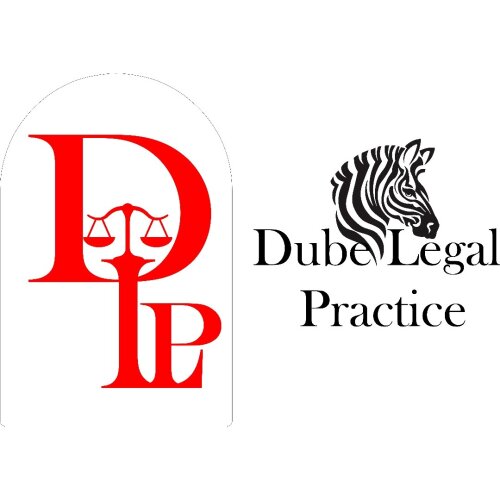Best Faith-Based Law Lawyers in Zimbabwe
Share your needs with us, get contacted by law firms.
Free. Takes 2 min.
Or refine your search by selecting a city:
List of the best lawyers in Zimbabwe
About Faith-Based Law in Zimbabwe
Faith-Based Law in Zimbabwe refers to the legal matters, regulations, and considerations that arise from the intersection of religious beliefs and the secular legal system. Zimbabwe is a religiously diverse country, with Christianity, Islam, and indigenous beliefs being the most prominent. Faith-Based Law can come into play in various areas such as marriage, divorce, inheritance, and education, where religious norms and legal statutes must be reconciled. In Zimbabwe, the Constitution upholds the freedom of religion, yet intertwining faith-based principles with national laws must be navigated carefully by legal practitioners.
Why You May Need a Lawyer
There are several situations where you might require legal help in the field of Faith-Based Law:
- Marriage and Divorce: Couples married under religious rites may need to address discrepancies between religious and civil law.
- Inheritance: Disputes might arise if a religious inheritance practice conflicts with national inheritance laws.
- Education: Faith-based schools may face legal challenges when aligning their curricula with national education standards.
- Employment: Religious institutions must comply with labor laws while upholding their faith traditions.
- Discrimination: Legal issues may occur when individuals or groups feel discriminated against based on religion.
Local Laws Overview
Key aspects of local laws relevant to Faith-Based Law in Zimbabwe include:
- Constitutional Rights: The Zimbabwean Constitution guarantees freedom of conscience, religion, and belief, providing a framework for legal recourse when these rights are perceived to be violated.
- Marriage Laws: Customary and civil marriages are recognized, with different legal requirements and implications for each.
- Succession and Inheritance: The Administration of Estates Act governs inheritance, which may sometimes conflict with religious practices.
- Education Act: Faith-based schools must meet legal standards while incorporating religious teachings.
- Anti-Discrimination Laws: The country's laws aim to prevent discrimination on religious grounds, offering legal protection to aggrieved parties.
Frequently Asked Questions
What is Faith-Based Law?
Faith-Based Law refers to legal matters and regulations influenced by religious beliefs, including practices in personal status laws such as marriage, divorce, and inheritance.
Is religious marriage recognized in Zimbabwe?
Yes, religious marriages are recognized as customary marriages. However, registering these marriages in the civil system is advised to ensure legal recognition.
Can I have a religious divorce recognized by the state?
Religious divorces may not always be recognized by civil law, requiring a formal divorce through the legal system for official status.
How do inheritance laws interact with Faith-Based Law in Zimbabwe?
In cases where religious practices differ from state law, legal routes such as wills can help ensure a person's religious wishes are considered in estate distribution.
Are there legal protections against religious discrimination?
Yes, Zimbabwean laws prohibit discrimination based on religion, offering remedies through the legal system if such cases arise.
Can faith-based schools set their curriculums independently?
While they can incorporate religious teachings, faith-based schools must adhere to national education standards to ensure students receive a balanced education.
What legal recourse is available if my religious rights are violated?
You can file a complaint with legal authorities or seek assistance from legal aid organizations specializing in human rights to pursue justice.
Is it possible to legally resolve disputes within religious communities without involving civil courts?
Religious communities often have internal dispute resolution mechanisms, but decisions may not have legal standing without civil court approval.
Does the Zimbabwean labor law apply to religious institutions?
Yes, religious institutions must comply with national labor laws while balancing their operational religious guidelines.
How do I find a lawyer specializing in Faith-Based Law?
You can contact the Law Society of Zimbabwe or legal aid organizations to find professionals with expertise in Faith-Based Law.
Additional Resources
Here are some resources and organizations that can provide assistance or more information:
- The Law Society of Zimbabwe: Offers referrals to qualified legal professionals.
- Zimbabwe Human Rights Commission: Enforces human rights laws and processes complaints.
- Local Faith Organizations: Many offer counseling and advice on religio-legal matters.
- Legal Aid Clinics: Provide legal assistance to those who cannot afford private legal services.
Next Steps
If you need legal assistance in Faith-Based Law in Zimbabwe, consider these steps:
- Identify and clearly define your legal issue.
- Consult with a lawyer specialized in Faith-Based Law to understand your options.
- Document all relevant details and communications regarding your issue.
- Explore resolution through mediation or religious community resources if applicable.
- Prepare for formal legal proceedings if necessary, guided by your lawyer's advice.
Lawzana helps you find the best lawyers and law firms in Zimbabwe through a curated and pre-screened list of qualified legal professionals. Our platform offers rankings and detailed profiles of attorneys and law firms, allowing you to compare based on practice areas, including Faith-Based Law, experience, and client feedback.
Each profile includes a description of the firm's areas of practice, client reviews, team members and partners, year of establishment, spoken languages, office locations, contact information, social media presence, and any published articles or resources. Most firms on our platform speak English and are experienced in both local and international legal matters.
Get a quote from top-rated law firms in Zimbabwe — quickly, securely, and without unnecessary hassle.
Disclaimer:
The information provided on this page is for general informational purposes only and does not constitute legal advice. While we strive to ensure the accuracy and relevance of the content, legal information may change over time, and interpretations of the law can vary. You should always consult with a qualified legal professional for advice specific to your situation.
We disclaim all liability for actions taken or not taken based on the content of this page. If you believe any information is incorrect or outdated, please contact us, and we will review and update it where appropriate.
Browse faith-based law law firms by city in Zimbabwe
Refine your search by selecting a city.















